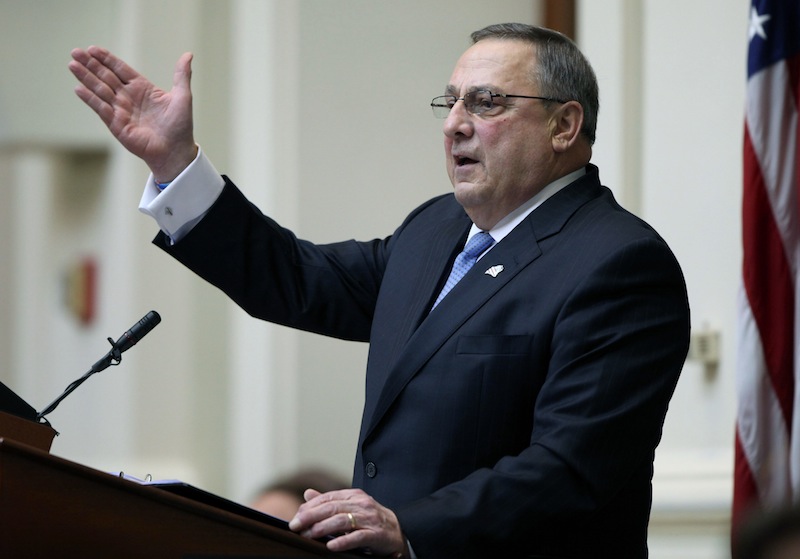AUGUSTA — Gov. Paul LePage has allowed a bill to prevent a $40 million cut in aid to cities and towns to become law.
The governor had until midnight Tuesday to either veto the measure or let it become law without his signature.
The proposal was fiercely debated in the Legislature but passed with margins large enough that it stood a good chance of surviving a veto.
LePage has said the measure will hurt the state’s credit rating and last week fulfilled his promise to withhold voter-approved bonds for transportation and infrastructure projects if the Legislature enacted the measure.
The cut in municipal revenue sharing would have taken place in the fiscal year that begins July 1. It was built into the budget passed last year as an alternative to scaling back or eliminating some of the $1 billion in tax breaks and economic development programs that cost the state revenue each year.
Lawmakers couldn’t agree on ways to scale back those programs or expand the sales tax base.
Instead Democrats, who have the majority in the Legislature, pushed a plan to prevent the revenue-sharing cut by tapping the state’s rainy day fund and an account designed to reduce income taxes.
Democrats said the bill, L.D. 1762, should pass because cutting revenue sharing would force municipalities to raise property taxes or reduce spending on education, police and fire protection, road maintenance and other services.
LePage’s objection to the bill centered on its use of the rainy day fund, which is money set aside to cover budget shortfalls or other expenses. The governor said raiding the fund would damage Maine’s credit rating and make it more costly for the state to borrow money for transportation, economic development and other needs.
Democrats have challenged that assertion, noting that LePage and the previous Republican-controlled Legislature used $26 million from the rainy day fund to balance a 2011 budget that contained a $400 million tax cut package that wasn’t fully paid for.
Democrats have also said they’ve received assurances from bond agencies that the state’s credit rating isn’t determined by the size of the rainy day fund alone.
Maine law says that 5 percent of the sales tax and income tax revenue collected by the state should be shared with cities and towns. But the state now shares only 3.5 percent, according to the Maine Municipal Association, because the Legislature has held onto the money for use in the state budget.
In 2012 alone, the state kept $44 million that should have gone to municipalities, the association says.
Lawmakers were under pressure from cities and towns to enact the measure, and many municipal officials testified for the bill at a public hearing.
While the revenue-sharing bill is now law, legislators still have to address a budget hole for the current fiscal year. They are doing so with little assistance from the LePage administration.
The governor has refused to participate in the budget process, breaking the longstanding practice of submitting a supplemental budget plan. The governor has said his refusal to submit a budget is because lawmakers refused to accept his budget plan from last year and instead enacted a two-year spending plan that contains a structural imbalance.
On Tuesday night, members of the Legislature’s budget-writing committee said they would soon release their supplemental budget proposal in two parts, one for the current fiscal year and another for next year.
The proposals are expected to be controversial and include an increase in the cigarette tax and spending cuts.
The committee will hold a series of public hearings on the budget bills beginning Tuesday.
Steve Mistler can be contacted at 791-6345 or at:
smistler@pressherald.com
Twitter: @stevemistler
Send questions/comments to the editors.


